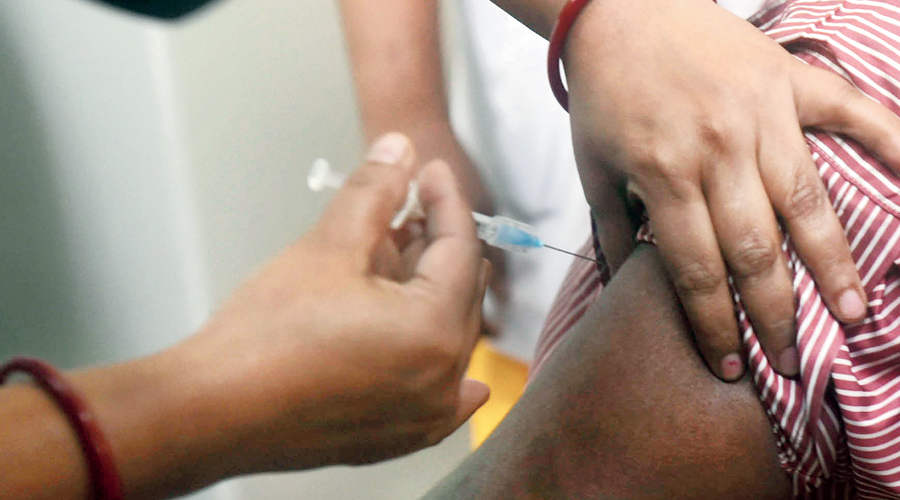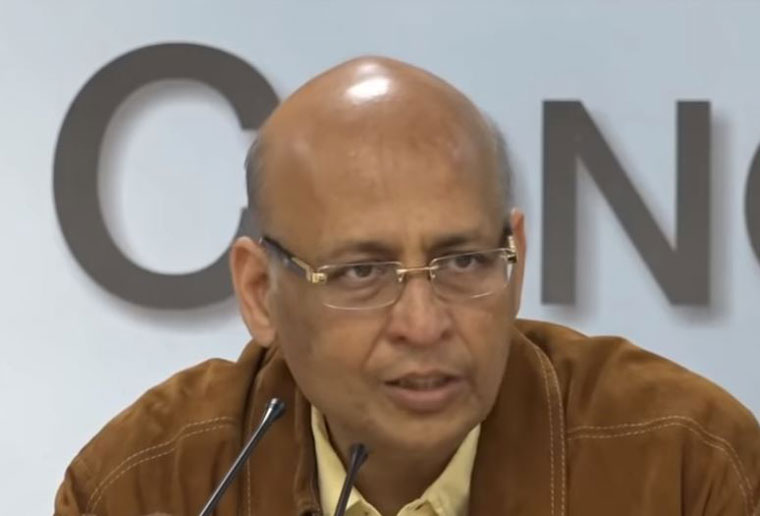The Union health ministry on Thursday announced a Rs 1,500-crore advance purchase pact with Hyderabad-based vaccine-maker Biological E to procure 300 million doses of a Covid-19 vaccine currently under global clinical trials.
The ministry said the vaccine was “currently undergoing” a phase-3 clinical trial after showing promising results in phase-1 and phase-2 trials and the Rs 1,500 crore advance payment was for doses expected to be produced between August and December 2021.
This is the ministry’s first advance purchase pact for a large quantum of doses of a candidate Covid-19 vaccine still under evaluation through a clinical trial, health experts familiar with vaccine development efforts and vaccine industry executives said.
“Had a similar decision been taken during the second half of last year with other Covid-19 vaccines that were under clinical trials then and are now in use, India would have had access to more vaccines now,” a health expert who requested anonymity told The Telegraph.
Biological E had announced on April 24 that the company had received approval for phase-3 clinical trial that would assess the candidate vaccine for protective efficacy against Covid-19 in 1,268 healthy volunteers at 15 sites across India.
But company executives on Thursday declined to say whether phase-3 clinical trials have started in India or specify the locations of the sites. They also declined to say how many doses per month the company expects to produce starting August.
“We cannot say now. We will provide details later,” one executive told The Telegraph.
The company has said the phase-3 trial in India will be part of a larger global phase-3 study. Biological E has developed the vaccine through technology procured from US-based institutions, BCM Ventures, the Baylor College of Medicines commercialisation team, and Dynavax, a biopharmaceuticals corporation.
The vaccine’s phase-1/2 clinical trials conducted in 360 health volunteers in eight hospitals across the country have shown it to be safe, well tolerated by recipients and capable of generating a promising immune response.
“This vaccine could one day fill the gaps and vaccine supply shortages in Africa, Latin America and low-income Asian countries,” Peter Hotez, professor and dean at the National School of Tropical Medicine at Baylor had said in April after the phase-1/2 results.
India’s health officials have included 300 million doses of Biological E’s vaccine into a projected inventory of doses through which they say the country will acquire a cumulative two billion doses between August and December 2021 — sufficient for 900-950 million eligible recipients.
The country is currently relying on 65 million doses per month of Covishield from the Serum Institute of India and 20 million doses of Covaxin from Bharat Biotech, the production capacities as stated by the health ministry in an affidavit in the Supreme Court last month.
The health ministry has said it expects 750 million Covishield doses, 550 million Covaxin doses and 150 million doses of Russia’s Sputnik V in addition to other vaccines still under development during the five months from August to December.
Health experts and industry executives have attributed India’s current vaccine shortages to what some have described as the policymakers’ failure to anticipate the number of doses India would require and take steps to secure them.
Many countries, including Brazil, the UK and the US, had signed advance purchase pacts with vaccine makers before December 2020 to secure doses when the vaccines become available.
“The Indian government did not invest in at-risk production, even after October last year when early clinical trial results from Covishield and Covaxin had arrived,” said an industry executive. “But what is the point discussing that now?”











